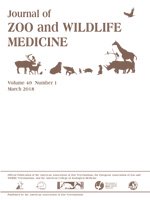Characterizing the health status and reproductive success of wild populations of sea turtles can be difficult; however, obtaining data to do this can provide important insight into the stability and long-term success of a population. This study examined the use of baseline corticosterone to assess reproductive success of a population of nesting loggerhead sea turtles (Caretta caretta) on Jekyll Island, Georgia and investigated hematological and biochemical trends in this population. A total of 37 nesting loggerhead sea turtles was sampled for this study. Eleven (29.7%) turtles were sampled in 2013 and 26 (70.3%) were sampled in 2014. A majority of the turtles sampled successfully nested (29/37, 78.4%; false crawls: 8/37, 21.6%). There was no significant correlation between baseline corticosterone concentrations and reproductive success (hatch success or emergence success) in this population. There was a significant positive correlation (r = 0.461, P = 0.02) between corticosterone concentrations and absolute monocyte counts. There was a significant negative correlation between monocyte count and hatch success (r = −0.464, P = 0.05) and a positive correlation between phosphorus and hatch success (r = 0.405, P = 0.05). Calcium concentrations were significantly different (P = 0.01) between animals that false crawled and those that nested, with nesting turtles having lower calcium concentrations than those that false crawled. Turtles that false crawled were significantly (P = 0.008) more likely to have elevated potassium concentrations than turtles that nested. This study provides the first attempt at characterizing baseline corticosterone, hematology, and biochemistry data and correlations with reproductive success in nesting loggerhead sea turtles. Overall, loggerhead sea turtles capable of nesting were found to be in good health and have good reproductive success while maintaining low levels of corticosterone during reproductive activities.
How to translate text using browser tools
1 March 2018
BASELINE CORTICOSTERONE, HEMATOLOGY, AND BIOCHEMISTRY RESULTS AND CORRELATIONS TO REPRODUCTIVE SUCCESS IN NESTING LOGGERHEAD SEA TURTLES (CARETTA CARETTA)
Jennifer E. Flower,
Terry M. Norton,
Kimberly M. Andrews,
Clare E. Parker,
L. Michael Romero,
Kelly E. Rockwell,
Mark A. Mitchell
ACCESS THE FULL ARTICLE
Caretta caretta
Corticosterone
health
reproductive success
sea turtle
stress





